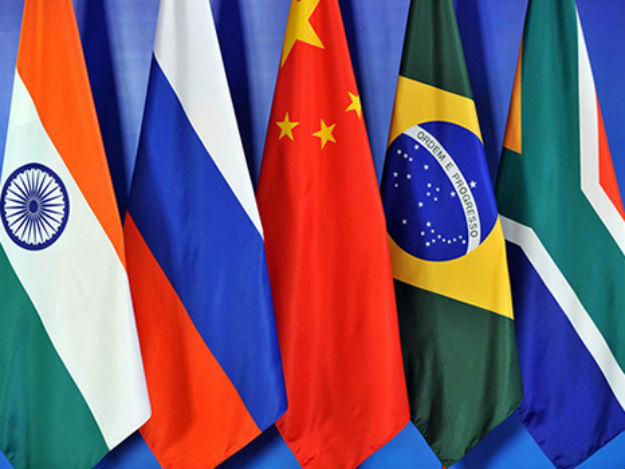President Jacob Zuma has returned to Pretoria after concluding a successful working visit to Goa in India, where together with Leaders at the 8th BRICS Summit, South Africa committed to building responsive, inclusive and collective solutions to the world economic challenges.
The 8th BRICS (Brazil, Russia, India, China, South Africa) Summit took place from 15-16 October 2016.
During the two-day Summit, President Zuma held bilateral meetings with all four BRICS leaders, namely, H.E President Xi Jingping of the People’s Republic of China; H.E President Vladimir Putin of the Russian Federation; Prime Minister Narendra Modi of the Republic of India, and H.E President Michel Temer of Brazil.
The leaders discussed bilateral, regional and multilateral issues of mutual concern aimed at achieving development, economic growth and prosperity, as well as peace and security.
Under the theme of the Summit, the BRICS leaders held interactive roundtable discussions on strengthening intra-BRICS cooperation and reflected on global issues such as international conflicts, the fight against terrorism, and reform of the global system of governance, notably the democratisation of the United Nations and the Bretton Woods Institutions.
The BRICS leaders met with the BRICS Business Council where they received the Council’s Annual Report on salient economic developments and projects, including the various initiatives undertaken by its Working Groups. The Leaders further directed the Council to accelerate the development and realisation of joint projects which, on a mutually beneficial basis, should contribute to the economic objectives of BRICS.
The BRICS Business Council, which consist of five members of each country, focuses amongst others, on areas of infrastructure, manufacturing, financial services, energy and the green economy, skills development, agribusiness and deregulation. The five members of the South African BRICS Business Council are: Mr Brian Molefe (ESKOM), Dr Iqbal Surve (Sekunjalo), Dr Danisa Baloyi (Black Business Council), Mr Khanyisile Kweyama (BUSA), and Mr Stavros Nicolaou (BRICS Information Sharing and Exchanging Platform).
BRICS Leaders also engaged in an Outreach Summit, together with the Leaders of the Bay of Bengal Initiative for Multi-Sectoral Technical and Economic Cooperation (BIMSTEC) which comprises Bangladesh, Bhutan, India, Myanmar, Nepal, Sri Lanka and Thailand. The regional organisation brings together 1.5 billion people in the region with a combined GDP of over US$ 2.5 trillion.
President Zuma stated that: “South Africa welcomes India’s outreach initiative to the BIMSTEC countries and support the regional development and integration initiatives of BRICS members.”
The 8th BRICS Summit concluded with the adoption of the Goa Declaration and Action Plan, which highlighted the strong foundation that BRICS has made in terms of establishing institutional mechanisms for tangible cooperation.
In this regard, the BRICS Leaders noted with satisfaction the operationalisation of the New Development Bank (NDB) and of the Contingent Reserve Arrangement (CRA), which contributes greatly to the global economy and the strengthening of the international financial architecture. The BRICS Leaders also welcomed the report presented by NDB President on the work of the Bank during the first year of its operations and progress made in operationalising the Africa Regional Centre (ARC) of the NDB.
The BRICS leaders further welcomed the possibility of setting up an independent BRICS Rating Agency based on market-oriented principles, in order to further strengthen the global governance architecture.
A Memorandum of Understanding on Establishment of BRICS Agriculture Research Platform was signed at the conclusion of the Summit, as part of the expanding BRICS institution-building agenda and sectoral cooperation initiatives.
During the Summit, President Zuma remarked that: “The annual meetings of BRICS countries have contributed to finding innovative approaches and solutions to our identified triple challenges – poverty, unemployment and inequality, as well as the development objectives and infrastructure agenda of the Continent as outlined in the African Union’s Agenda 2063. We look forward to developing new BRICS initiatives in a wider range of areas in the years to come.”
The BRICS Leaders again welcomed the African Union’s (AU) vision, aspirations, goals and priorities for Africa’s development enshrined in Agenda 2063, which is complementary with the 2030 Agenda for Sustainable Development. The Leaders reaffirmed their support for Africa’s implementation of its various programmes in pursuit of its continental agenda for peace, socio-economic development, sustainable development and regional integration.
The incoming Chair of BRICS, China, will host the Ninth BRICS Summit in 2017.
